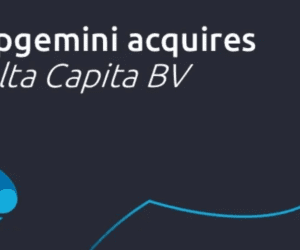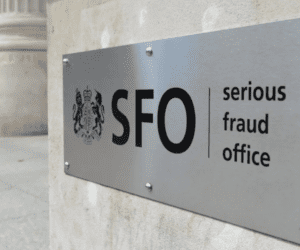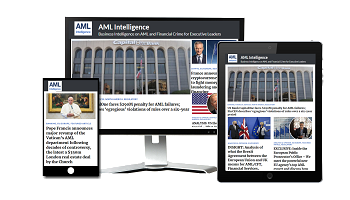By MIKHAIL KARATAEV
ONE of the most significant global political events of 2024 was the election of the 47th President of the United States – a moment that symbolically coincided with the 50th anniversary of the resignation of the 37th President, Richard Nixon.
That resignation, which marked the culmination of the Watergate scandal, served as a powerful reminder that during election campaigns, even future national leaders can employ financial schemes strikingly similar to those used by criminals to launder money.
State leaders have broad political and economic powers, so in the fight for high positions, potential candidates often use both of these tools, not always staying within the law. Each country, of course, has its own characteristics, but during elections, both authoritarian regimes and democracies become especially vulnerable to anti-money laundering and countering the financing of terrorism (AML/CFT) risks.
The year 2024 elections taken place in the US and the UK, Russia and Iran, Venezuela, Taiwan, Indonesia, South Africa, Mexico, India, and dozens of other countries. This broad palette allows analysis of the misuse of AML/CFT instruments across a wide range of political systems, providing banks with a comprehensive understanding of all possible AML/CFT risks of the election process. In the absence of specific international AML/CFT standards, each bank must independently assess election risks and develop an action compliance plan.
2025 is poised to continue generating significant AML/CFT risks for the banking sector, as the global election cycle expands beyond Germany to include Japan, South Korea, the Philippines, Poland, Portugal, Romania, the Czech Republic, Egypt, Canada, and nearly 40 additional countries. That’s why it’s important to avoid repeating the same old Watergate mistakes and minimizing potential AML/CFT risks in the 2025 elections.
Election repression
The pre-election time in countries with imperfect democracies, hybrid and especially authoritarian regimes is traditionally characterized by numerous repressions against opposition candidates and members of their families. In this context, counter-terrorism and so-called “counter-extremism” legislation has become the most convenient way to persecute political opponents.
In particular, Financial Action Task Force (FATF) Recommendations 5 and 8 have proven to be very useful tools in authoritarian political cultures that habitually weaponize security laws against opponents and civil society.
Numerous examples clearly illustrate how political opposition leaders have faced extremism charges and imprisonment over the past 10 years, often under controversial and politically charged circumstances: Alexei Navalny (Russia), Svetlana Tikhanovskaya and Viktor Babariko (Belarus), Leopoldo López and Juan Requesens (Venezuela), Ahmad Zeidabadi and Nizar Zakka (Iran), Ilgar Mammadov (Azerbaijan), Selahattin Demirtaş (Turkey), Maurice Kamto (Cameroon), Bobi Wine (Uganda) and others.
A similar scenario may now be unfolding with Romania’s far-right presidential candidate, Calin Georgescu, who in March 2025 faced six criminal charges filed by prosecutors, including allegations of extremism and campaign finance irregularities. A similar pattern emerged in Turkey in March 2025, when Ekrem Imamoglu, the Mayor of Istanbul and the leading opposition figure, was arrested on charges of corruption and terrorism just days before he was expected to be nominated as the main challenger to President Erdogan. This case highlights the growing intersection between political extremism, financial misconduct, and AML/CFT vulnerabilities, particularly during high-stakes election cycles where counter-extremism frameworks may be weaponized to suppress electoral competition under the guise of security enforcement.
Wiretapping people on “Nixon’s enemies list,” as one of the most serious charges in the Watergate scandal, has become a routine part of the anti-extremist policies, which is used without restrictions against opposition leaders in Africa and the former USSR. Belarus is a textbook example of how “counter-extremism” legislation has proved to be the ultimate tool for purging civic space, suppressing free expression, eradicating political opposition and ultimately eliminating all independent institutions in the country that could represent a political alternative to the incumbent President, in office since 1994.
Difficult position for banks
Accusing political opponents of extremism allows national leaders to launch AML/CFT mechanisms in the financial system. For banks, this means not only endless requests from law enforcement agencies for information about payments from these people and related entities, but also the obligation to freeze assets and suspend payments as part of CFT measures. Banks operating in the country are required to comply with national CFT legislation, which means they are deprived of the opportunity to discuss the validity of restrictive measures against opposition leaders.
Due to the lack of unity in international assessments of extremism, banks in other countries have the right to independently assess the risks of payments to opposition leaders and their structures, which, however, requires a specific methodology that goes beyond modern international AML standards. For instance, despite the significant risks of banking services, such customers are de facto not on international terrorist lists and are de jure not politically exposed persons (PEP), which makes it impossible to automate the KYC process based on FATF Recommendations 5-6 (terrorism) or 12 and 22 (PEP).
By the nature of their functions, opposition leaders are not just people to be checked and controlled. This problem is compounded by elections, where people take on different responsibilities that can create or eliminate risks. In addition to the difficulty of identifying them, it is also necessary to note the incorrectness of applying standard approaches to assessing AML risks for this category of clients.
Customer understanding
In this case, the bank should not so much control as it should deeply understand the customers’ activities, and therefore have its own clear idea of how the scale and sources of financing relate to the stated goals of the activity. This requires AML analytics to use a variety of information from multiple independent sources, which should include information directly from the customer, information gathered from a customer’s banking activity, adverse media identified through negative news screening, third-party sources, and other behavioral data.
Adverse media is an integral part of this package, especially for enhanced due diligence as part of initial onboarding and ongoing monitoring. Analysts must also ensure they clearly understand the purpose of a customer’s account, the source of their wealth, and funds, including the expected inflows and outflows from that account. It’s important to note that all account types should be subject to verification, and if they are not verified, dormant accounts can pose an even greater risk.
Regulators have, for example, criticized banks for not offboarding clients with dormant accounts, given the risk this created for clients who should have been offboarded to process transactions. If a client opened an account before becoming the leader of the opposition, and resumed activities only after a change of political views, this requires special compliance control. This is why technology stacks and artificial intelligence (AI) are critical to the modern KYC process. Additionally, you need to keep in mind that in international standards and national AML legislation there are no special rules for assessing opposition risks, so each bank must independently develop an appropriate methodology.
Corruption
If the opposition wins the elections, we can see the other side of this coin, because presidential elections not only determine the vector of the country’s further development, but also traditionally reveal the corruption stories of the previous government. For instance, Nigeria’s former central bank governor Godwin Emefiele has been in prison since June 2023. Probe says G. Emefiele opened 593 foreign accounts in the United States, China and the United Kingdom.
The investigation found £543 million hidden in the UK alone. Thus, the risks of relations with PEP for banks in 2025 are very significant. Therefore, based on FATF Recommendations 12 and 22 compliance should carry out additional work to update identification data and obtain documents confirming the legal origin of funds received in previous years.
Considering the realities of 2025 compliance with KYC should begin not only with directly determining the client’s status and identifying the source of his funds, but also with a request for the grounds for their transfer. For instance, the source is quite legal in G. Emefiele case, but the transfer was made without the appropriate authority.
Issues
However, the practical implementation of these norms faces in banking a number of objective difficulties, since compliance officers are most familiar with their home country’s political system and processes. What many often overlook how different systems, legislatures, and power distribution can be, even in countries that may share a common language or a large degree of regulatory consistency.
For instance, in Singapore, a small country with a highly centralized government, almost all PEPs are national. In contrast, the UK has a 50/50 split based on the higher degree of power held by the central government and the US PEP ecosystem is dominated by local-level officials, reflecting the large volume of elected officials at the state level. At the same time taking just national office holders in the US Congress, UK parliament, and India’s Lok Sabha alone, then more than 1,600 seats contested in 2024, with the number of potential candidates typically 3-4 times the number of seats.
This pace of change creates a significant challenge for banking financial crime compliance teams, who need to ensure they can process these changes effectively without creating undue friction or missing important new risks. Beyond political structures, jurisdictions also define PEPs differently. For example, while “once a PEP, always a PEP” applies in Hong Kong, this is not the case in the UK or Australia.
Money laundering lessons from history
Election procedures in advanced democracies are very different from those in authoritarian countries, but they still represent a complex and dynamic compliance risk zone that requires proactive measures to detect, prevent and mitigate potential AML risks. Lessons from the Watergate scandal show the need for mechanisms to conceal the sources of campaign funds and related payments.
It is no coincidence that media sources covering Watergate soon embraced the term “money laundering,” thereby cementing its place in our modern lexicon. The dark shadows of Watergate’s finances point to the need for cash and foreign banks to cover their tracks – a classic example of what we know today as the “pass-through” money-laundering technique.
Advances in modern technology provide criminals with new opportunities, and in modern finance, cryptocurrencies can sometimes provide criminals with more advantages of anonymity and mobility than cash. With the increasing digitization of political campaigns, including online fundraising and advertising, there’s a growing possibility of donations being made using cryptocurrencies. These transactions can be difficult to trace and regulate, presenting challenges for AML efforts.
Banks face the risks of such transactions when converting crypto assets into fiat currency, for which they actively use bank cards and accounts registered to fake individuals (money mules). It is also important to note the great potential of cryptocurrencies to foreign interference in elections.
Crypto risk
Foreign entities may attempt to use cryptocurrencies to launder money through various channels to support or undermine specific candidates or agendas, creating a significant AML risk. These risks increase critically in some channels, if we consider, for instance, that users from Russia ranked first in the number of visits to the Bybit cryptocurrency exchange, and the share of Russian traffic on the Bybit exchange reached 27% in 2024. But to comprehensively understand AML risks, banks should see the whole picture and take into account the specifics of the election race infrastructure.
Political campaigns and associated organizations often use complex financial structures, including PACs (Political Action Committees), Super PACs, and non-profit organizations, which can receive unlimited donations from individuals, corporations and unions, often without revealing the true source of funds. This lack of transparency creates opportunities for money laundering and other financial crimes to occur under the guise of political contributions, which are only discovered through individual fraud investigations.
The best illustration is the facts revealed as a result of the investigation into the bankruptcy of the FTX crypto exchange, whose leaders invested $57 million in the treasury of the Democrats and $22 million to the Republican candidates via super PACs and direct contributions, making Sam Bankman-Fried the second- biggest Democratic-leaning megadonor and Ryan Salame was the 10th largest Republican donor this election cycle.
Corruption red flags
Elections in democracies often involve intense lobbying efforts and interactions between politicians, donors, and special interest groups. This environment can create opportunities for corruption, bribery and other forms of financial crime that require careful AML oversight. Since large amounts are involved, in most cases non-cash payments through the banking system are used to carry out such transactions. This is why almost all banks, regardless of whether they serve political leaders, are potentially taking on the AML risks of election campaigns. Corruption red flags that banks encounter during election periods include:
- Using political donations to influence official actions, gain favors, or win lucrative government contracts
- Attempting to disguise the nature or extent of a party’s relationship with a company it is doing business with
- Large or suspicious payments for government services that may benefit the ruling party
- Transactions occurring in countries or jurisdictions known to have a high risk of corruption.
As political leaders seek to sway voters to maintain power or deliver favors ahead of expected defeat, any of these red flags could become more prominent in 2025.
Given the large number of elections in 2025, banking compliance teams should plan ahead by reviewing business-wide risk assessments, particularly the jurisdictions they operate and the specific historical and inherent risks of those locations. The tricky part for compliance is not to go to extremes, passing clients through without additional checks or creating unnecessary friction that is disproportionate to the client’s risk.
Limits of AML
Finally, it is important to recognize that even with comprehensive onboarding, ongoing monitoring, declassification and offboarding processes, there is a limit to the depth and scale of information one bank can to establish alone. Lessons from the Watergate scandal show that public-private partnerships on data sharing are critical for banks ahead of the election, as it broadens their perspective and identifies emerging AML risks faster.
Election times traditionally see an increase in political spending, potentially leading to an influx of funds that need to be closely monitored for suspicious activity. That’s why, if compliance uses only formal legal rules during the election period, the bank will be uncontrollably exposed to financial crime risks and will face serious problems in the future.
The lessons of Watergate make it clear that during an election banks should be ready for resource and technological innovations to ensure that the AML system responds to changing conditions and historical circumstances without waiting for official government guidance.
- Author Mikhail Karataev holds a Ph.D. in economics and has authored more than 100 articles and books on the topic of regulatory compliance.











